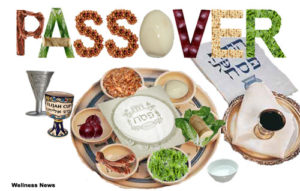 Passover or Pesach is an important, biblically derived Jewish holiday. The Jewish people celebrate Passover as a commemoration of their liberation by God from slavery in Egypt and their freedom as a nation under the leadership of Moses. It commemorates the story of the Exodus in which the Israelites were freed from slavery in Egypt.
Passover or Pesach is an important, biblically derived Jewish holiday. The Jewish people celebrate Passover as a commemoration of their liberation by God from slavery in Egypt and their freedom as a nation under the leadership of Moses. It commemorates the story of the Exodus in which the Israelites were freed from slavery in Egypt.
Passover commences on the 15th of the Hebrew month of Nisan (Passover 2017 will start the evening of
Monday, April 10 and will end the evening of Tuesday, April 18) and lasts for either seven
days (in Israel and for Reform Jews and other progressive Jews around the world who adhere to the Biblical commandment) or eight days for Orthodox, Hasidic, and most Conservative Jews.
A day commences at dusk and lasts until the following dusk, thus the first day of Passover begins after dusk. It is one of the most widely observed Jewish holidays.
The rituals unique to the Passover celebrations commence with the Passover Seder.
In the narrative of the Exodus, the Bible tells that God helped the Children of Israel escape from their slavery in Egypt by inflicting ten plagues upon the ancient Egyptians before the Pharaoh would release his Israelite slaves; the tenth and worst of the plagues was the death of the Egyptian first-born.
The Israelites were instructed to mark the doorposts of their homes with the blood of a slaughtered spring lamb and, upon seeing this, the spirit of the Lord knew to pass over the first-born in these homes, hence the English name of the holiday.
When the Pharaoh freed the Israelites, it is said that they left in such a hurry that they could not wait for bread dough to rise (leaven). In commemoration, for the duration of Passover no leavened bread is eaten.
